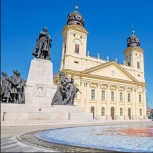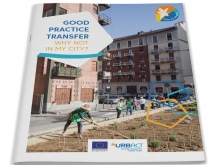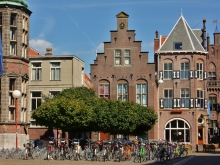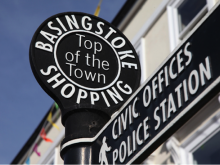
Debrecen
Debrecen is a dominant business centre in CEE with a diverse and balanced portfolio of sectors, with the development of the automotive sector being the most outstanding lately, followed by the electronics and machine industry, and the Business Services Sector (BSC).
The long-term vision of the City of Debrecen is to become an increasingly strong regional centre in Central and Eastern Europe by 2030. In the year 2018, Debrecen focused on creating strong foundations for its medium and long term development via major investments in its business infrastructure, new industrial parks in the total area of ~1,100 hectares; top quality office space developments; large-scale expansion in its transportation network including road, rail and air; and major efforts in the business-focused transformation of its educational system and creating an official platform for regional cooperation.
Debrecen is an academic centre: its internationally acknowledged university has a population of 30,000 students. One of the city’s economic successes is a longstanding and productive cooperation between the academic, business and public sectors. As a result, spin-off research companies with incubator facilities have been established. Moreover, Debrecen is home to a growing health and wellbeing sector. The recently launched International School of Debrecen offers a full-scale educational programme in English under the International Baccalaureate standards (including Primary Years, Middle Years and Diploma Programmes). Additionally, Deutsche Schule system foundations have been laid, with operation starting in 2021.
SOME RELATED NETWORKS
ESIMeC
INTERACTIVE CITIES
News
How to transfer urban good practice? Check URBACT's latest publication
Article
Welcoming international professionals and students
News





